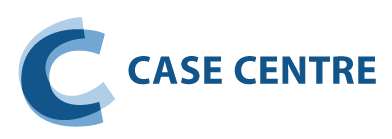


- Not connected
- |
- Login

Marou : produire du chocolat haut de gamme from bean to bar au Vietnam
Marou: Producing High-End Chocolate from Bean to Bar in Vietnam

- IJCSM Best Case Award
- French,
- English
- Entrepreneuriat/PME,
- Vietnam,
- Approvisionnement,
- Modèle d’affaires,
- Croissance,
- Écoresponsabilité
- Entrepreneurship/SME,
- Vietnam,
- Procurement,
- Business model,
- Growth,
- Environmental responsibility
En 2011, Samuel Maruta et Vincent Mourou, deux Français établis au Vietnam, créent Marou, une entreprise de fabrication de chocolat fin « de la fève à la tablette ». En 2018, Marou possède deux boutiques au Vietnam et exporte son chocolat dans vingt autres pays, notamment aux États-Unis, en France, en Suède, au Japon et en Corée du Sud. Son modèle d’affaires et sa marque sont profondément ancrés dans son mode d’approvisionnement en cacao exclusivement local : Marou tisse des liens étroits avec de petits fermiers vietnamiens afin de se garantir tant un approvisionnement stable qu’une qualité irréprochable, indispensable à la fabrication de chocolat haut de gamme. Tout en exposant les valeurs et la vision des fondateurs centrées sur le goût, l’achat local, le commerce équitable et durable, ainsi qu’une croissance prudente et organique, le cas présente les efforts et les actions de l’entreprise pour assurer son approvisionnement et la qualité de sa fabrication de chocolat à partir des fèves de cacao. Il décrit également la stratégie de distribution et de vente de l’entreprise, tant au Vietnam qu’à l’international. Lauréate de plusieurs prix internationaux et saluée par le New York Times qui proclamait en mars 2016 que Marou était « le meilleur chocolat au monde », l’entreprise semble bien positionnée dans la niche des chocolats de qualité bean to bar.
In 2011, Samuel Maruta and Vincent Mourou, two Frenchmen living in Vietnam, founded Marou to produce fine chocolate from bean to bar. Just seven years later, Marou had opened two shops in Vietnam and was exporting its chocolate to twenty countries, including the United States, France, Sweden, Japan, and South Korea. The company’s brand and business model were deeply rooted in its commitment to using only locally grown cacao beans: Marou had forged close ties with small Vietnamese farmers to create a reliable supply of high-quality beans, vital to the production of exquisite chocolate. While highlighting the values and vision of the company’s founders (taste, local purchasing, fair and sustainable trade, prudent and organic growth), the case outlines the company’s efforts to secure its supply of cacao beans to ensure the high quality of the chocolate it produced. The case also describes the company’s distribution and sales strategies both domestically and internationally. The winner of several international awards and lauded by the New York Times in March 2016 as producing “the best chocolate you’ve never tasted,” Marou seemed to be well positioned in the high-end “bean to bar” chocolate niche.
- Retail trade,
- Consumer goods,
- Manufacturing
Canevas du modèle d’affaires
- Comprendre ce qu’est un modèle d’affaires et savoir reconnaître les composantes du modèle d’affaires d’une entreprise.
- Apprécier les liens entre le modèle d’affaires d’une entreprise, sa mission et les valeurs de ses dirigeants.
- Concevoir des actions concrètes pour consolider un modèle d’affaires et soutenir la croissance d’une entreprise.
Canevas du modèle d’affaires


